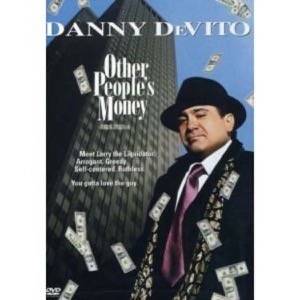For those of you who have procrastinated about getting your corporate website together, I have some good news for you: you can pat yourselves on the back because you have just saved a bunch of money. For many smaller businesses, you don’t really one anymore. Welcome to the post-Web era.

Now, this doesn’t mean that the Web is dead. Far from it, as you might expect from someone who writes for this publication. But the stand-alone website, in all of its pixilated glory, is becoming obsolete. Yes, you do need something for potential customers to bring up in their browsers when they type in companynamedotcom. But you also don’t need to put a lot of effort into its creation. Here is why.
The days of building community are happening outside of your own dot com. It used to be that you created brand awareness and a destination for your customers by having your own site. No longer. Now, there are plenty of others who will do it for you, and often they will do so without you having to pay them. Remember the phrase OPM? It used to mean other people’s money. Today it means Other People’s Marketing. Let me give you a few examples.
My wife is an interior designer and supervises a small staff. Some of her business is coming from the communities that she participates in with HGTV.com and Houzz.com, two places that people go to look at pretty rooms and get ideas for their own decorating. By writing comments on these and other discussion forums, she is sharing her knowledge with the people most likely to hire her. It doesn’t cost her anything to participate in these forums, other than her time, and she is reaching a ready-made audience of thousands of women (let’s face it, we guys generally don’t concern ourselves with design) who are hungry for this kind of information.
Yes, she does have her own business website. She does need it to give her business a sense of legitimacy and purpose. But that site gets dozens of visitors a week, rather than the hundreds or thousands that the other sites do. She is using OPM.
Here is another situation. All of us writers at ReadWriteWeb participate in varying degrees on Twitter too. We post and repost links to our stories and that of our colleagues, and many people follow us as a result. All well and good. But wouldn’t it be better if someone else posts a link to our stories on their Twitter account? Doesn’t that link carry more weight than just our own flogging of our content? Yes. Remember, OPM! I was covering a conference not too long ago: one of the participants of the conference liked one of my stories, and Tweeted about it. That was far more effective than my own Tweet. I was being validated by someone else’s point of view.
The same can be said about Pinterest. Again, why should I try to post photographs of my work (if I am a visual artist) when I can do the same on a site where millions of people are clicking and recommending what they see to others? Certainly I can spend the time and create some very nice HTML that showcases my art on my own dot com. But if I am trying to reach a wider audience? OPM has already built a pretty nice way to distribute this information.
Now, I don’t think we are going to just forgo our websites entirely, but certainly we should place less effort into making them the sprawling digital places of c.1999. No need. A friend of mine, Bruce Fryer calls this the “Cheap Bastard Startup” method of IT. He even owns the dot com. Just make it good enough to get by, and count on OPM to push you further along.
Yes, OPM does have some drawbacks: Like Blanche DuBois, you do have to rely on the kindness of strangers. Particularly when it comes to online discussions, there are trolls and others who don’t hesitate to take people apart verbally. You do have to develop a thicker skin, and try not to take these folks too seriously. And you have to constantly feed your discussions and other sites with content, with recommendations, and spend time to make sure that you are part of the ongoing conversations online. It certainly is easier to just put up a piece of content on your own website, press publish, and walk away. But it is more satisfying once you get your OPM network working for you.
Welcome to the post-Web era. And if you are looking for some window treatments, I can point you in the right direction.
N.B. If you liked this article, it is part of a series on SAY Media’s “This Week In Venn” here.

















